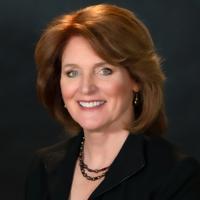The Brain, Music, And Optimal Performance
Thursday 2nd March 2023, 5:00 PM - 7:00 PM (London Time)
This clear yet delightfully quick-paced introduction to cognitive neuroscience for the voice studio nimbly weaves together discoveries in neuroscience with the experience of vocal artistry to show how singing can be viewed as a perception-action cycle.
From the outset, practical-application exercises demystify how the conscious mind integrates with unconscious sensory and motor processes to unleash our body’s intelligence to produce optimal and even peak performance in the expressive and artistic endeavor we know as singing.
Through this further expansion of voice science and pedagogy into the field of cognitive neuroscience, singers learn to take charge, to mindfully integrate their audio-motor intentions with expert motor response.
The teacher becomes equipped to better understand optimal flow of information, where disruption may occur, and how to guide the student in setting the right goal for the task of the moment — to get the thinking right.
Dr Karen Leigh-Post
Karen Leigh-Post, Voice Department Chair, and Professor of Music at Lawrence University is internationally recognized as a pioneer...

Attend this course for as little as £22 as part of the Voice Professional Training CPD Award Scheme.
Learn MoreSorry, this is an archived short course...
We have plenty of upcoming short courses coming soon. See details of some of them below or look at the full list of short courses.

Thursday 19th February 2026
1:00 PM - 2:30 PM
Thursday 26th February 2026
1:00 PM - 2:30 PM
(London Time)
Performing Pain: Vocal Health in Emotional Roles!

Louisa Morgan
How connected are acted emotions to our real-life emotions? Are they expressed differently? Do they feel different in the body? This 2-part course with Louisa Morgan looks at the potential impact of acted emotion on vocal health, why we should consider it as voice practitioners, and how to care for our performers needing to work with it.


Tuesday 24th February 2026
5:00 PM - 7:00 PM
(London Time)
Incorporating CBT principles within vocal health and voice care

Dr Luke Aldridge-Waddon
Join Dr Luke Waddon as he introduces the principles and techniques within cognitive-behavioural therapy (CBT) in relation to the voice and voice care. He will discuss psychological factors relevant to the development and maintenance of voice disorders and how these might be approached from a cognitive-behavioural perspective. He will describe theoretical concepts and therapeutic components often used within CBT and consider how these might be applied when working with voice users.


Tuesday 3rd March 2026
5:00 PM - 7:00 PM
(London Time)
Sex differences in VOICE!

Dr Richard Lissemore
This two-hour workshop, led by performer, articulatory phoneticist, and voice physiologist, Dr. Richard Lissemore, will examine in detail the role that biological sex plays in the perception and pedagogy of singing voices. We'll consider how parameters such as anatomy, physiology, articulation, resonance, and radiated acoustics influence the perceptions and pedagogical decision-making of singing teachers.
